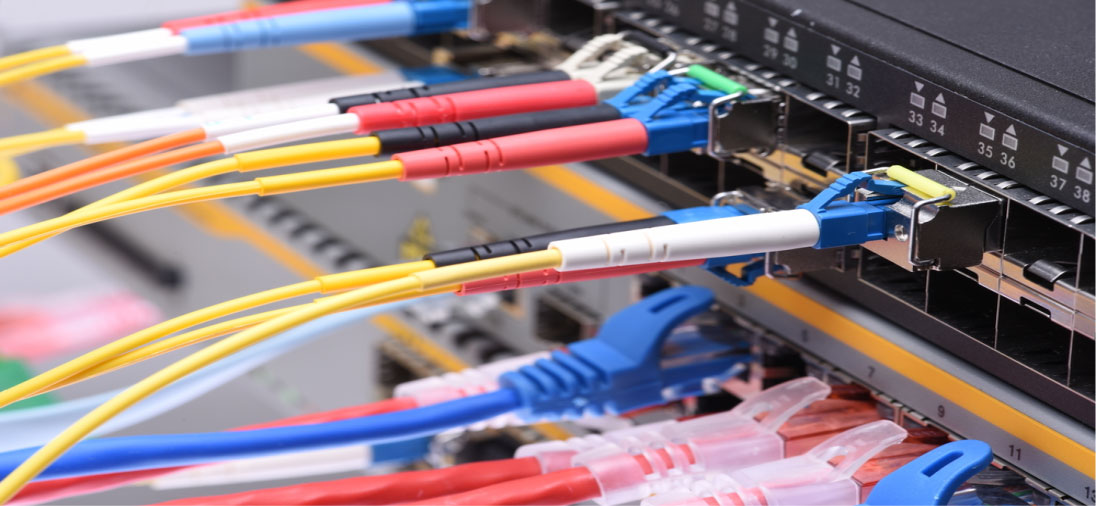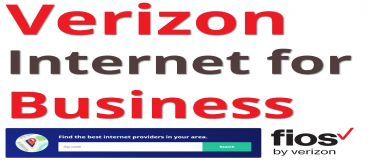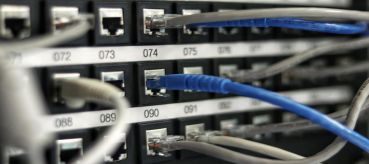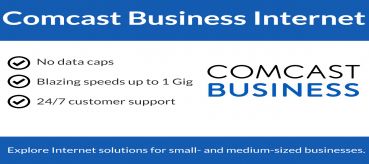Difference Between Shared and Dedicated Fiber-Optic Business Internet

It is no longer an option for businesses to operate without a reliable Internet connection. Business fiber Internet providers are expanding their service areas to include previously unserviceable areas. Using a business fiber service can boost productivity, improve network performance, and ensure business continuity. A commercial fiber-optic Internet connection, like any other service, has advantages and disadvantages. Dedicated fiber and shared fiber Internet services are the two types of business fiber-optic Internet connections.
Shared Fiber Internet
A shared fiber Internet connection is exactly what it sounds like: it's a shared network. This type of service is shared with other businesses within a building or in the surrounding region. A shared fiber connection's stability and performance might vary, with peak times facing low bandwidth, excessive latency, packet loss, and jitter. Providers will not issue an SLA or much in the way of performance assurances because it is a shared bandwidth connection.
Shared fiber connections are even more limited, typically only available in major regions but not everywhere. The lowest pricing point for a particular bandwidth speed is the primary selling factor of shared fiber Internet service. AT&T Business Fiber, Verizon Fios, Frontier Fios, and Centurylink Fiber+ are all popular shared fiber offerings. This sort of fiber connection is designed for retail and small businesses that place a premium on cost-cutting. In addition, because network infrastructure is shared, a shared fiber optic Internet installation is substantially less complicated.
Also Read: Why Fiber Technology is the Road For Eco-Friendly Network

Dedicated Fiber Internet
The capacity on a dedicated fiber Internet connection is allocated solely to your company. Dedicated fiber Internet service is widely available, covering major metro areas as well as more rural places. Dedicated fiber bandwidth rates are constantly steady, uptime is extremely high, and network latency, packet loss, and jitter are all extremely low. The service is also supported by a Service Level Agreement, which ensures performance and dependability.
This sort of fiber Internet service offers the best performance and reliability. A dedicated fiber Internet service is preferred by most larger enterprises that rely on Internet connectivity for internal or cloud-based applications. The only significant disadvantage is that it is more expensive than a shared fiber connection.
Installation Requirements for Dedicated Fiber
We selected to focus on dedicated fiber installations for this post since they are a considerably more complicated procedure for both providers and consumers, and they are the preferred option for most larger enterprises. When you decide to acquire service and upgrade to a dedicated fiber-optic Internet connection, the first step is to have a provider specialist do a site survey to assess your needs.
Most of the time, this would be done by a technician from the local phone or cable company, as they have the most fiber coverage in most markets. Other companies will buy wholesale fiber access (fiber local loop) from them in order to provide clients with dedicated fiber Internet. Some site needs may already be in place, but if not, an electrical contractor can help with most concerns. The following are the prerequisites for installing dedicated fiber optic Internet at your location.
• Ground: To avoid maintenance concerns, grounding is necessary. Business fiber installation necessitates the use of a big wire to ground equipment/racks through a ground rod or building bus bar. All power-connected equipment must be properly grounded with a three-prong outlet.
• Environment and Space: To maintain a secure fiber-optic Internet connection, various space and environmental laws must be observed. Due to the sensitivity of the equipment, the installation location must meet specific temperature, humidity, and dust requirements. In addition, the room must have a fire-resistant backboard or racking to mount equipment on. Furthermore, the power, ground, and customer router must all be close by.
• Route/Path: The fiber provider's network, usually at the property line, starts the journey and terminates at your router. The router and the original demarcation location are sometimes the same things. Technicians must typically trace a functional path from their fiber network to the building demarc. If you work in a large office building, you may need to negotiate with the owner. The conduit must be 2-4 inches in diameter, with a pull rope and bend criteria. If the circuit's terminating terminus (for example, an office suite) is beyond the building demarc, additional interior wiring/conduit work may be required. Plan ahead of time and arrange your business fiber installation, keeping in mind that the initial phase may take some time.
• Power: To maintain a fiber optic connection, routers, modems, and network devices must have enough power. A typical power requirement for this equipment is 15-20 amps and a 110-120V AC outlet in close vicinity.
Also Read: What to Consider When Choosing A Router For Your Business
Fiber Optic Turn-Up and Installation
Following the completion of the site requirements, the next phase is to install the fiber, test it, and schedule the turn-up. The majority of this stage of the installation, including fiber insertion, splicing, and equipment to support the service, is completed within the provider's network. They'll next pull fiber to the spot, connect equipment, and test everything. If everything passes the tests, the final step is to organize a turn-up with the customer, usually with the tech contact or the onsite IT manager. There is no downtime because the service is implemented alongside any existing Internet service, even a dedicated fiber line that is already in place.
For most places, the entire dedicated fiber installation procedure takes roughly 60 days, however, it can be prolonged if additional network building is required. Dedicated fiber Internet takes longer to establish than shared fiber Internet, cable, DSL, or satellite, but the benefits are well worth the wait. Bandwidth availability, uptime, latency, packet loss, and jitter are all excellent and will fully support any commercial application. Dedicated fiber is preferred by most businesses that require this degree of performance and reliability over a shared Internet connection.
To learn More About Fiber Business Internet
Related Posts
Wed, Apr 22, 2020 11:34 PM
Find Verizon Internet for Business Near You!
Verizon provides Internet for business in more than 40 states in the US, speeds are limited to 15 Mbps, and many businesses will need more juice. If you're in the Northeast, you can enjoy high-speed Internet via Verizon's FiOS. This is ideal for businesses that need high speeds, such as restaurants, hotels, medical facilities, hospitals, schools, and other businesses.
Thu, Apr 23, 2020 12:00 AM
5 Best Small Business Internet Service Providers (2021)
The following Internet Service Providers are not listed in any particular order, but we have ranked these five companies as worthwhile due to some key factors such as speed, reliability, cost, and overall customer satisfaction.
Mon, Apr 20, 2020 11:13 PM
Business Internet Guides for Entrepreneurs
Small businesses need to grow, but how big should your business become before you buy it online? Whether you started out as a sideshow or a brick-and-mortar business, successful small businesses are finding it increasingly difficult to decide when to shell out money for an Internet business.
Thu, Apr 23, 2020 11:52 PM
Why Business Internet is More Expensive Than Residential Internet
This question is asked so often today that it seems worth explaining, but here are 5 reasons why business Internet is more expensive than Residential Internet packages.
Fri, Apr 24, 2020 5:17 AM
Comcast Internet For Business: Internet, Phone, TV, and Other Solutions for your Business.
Comcast Business is US largest cable provider for small and medium-sized businesses and has become a force in the market, recognized by leading industry over the past two years as one of the fastest-growing providers of high-speed broadband to business customers
_1630010479.png)




